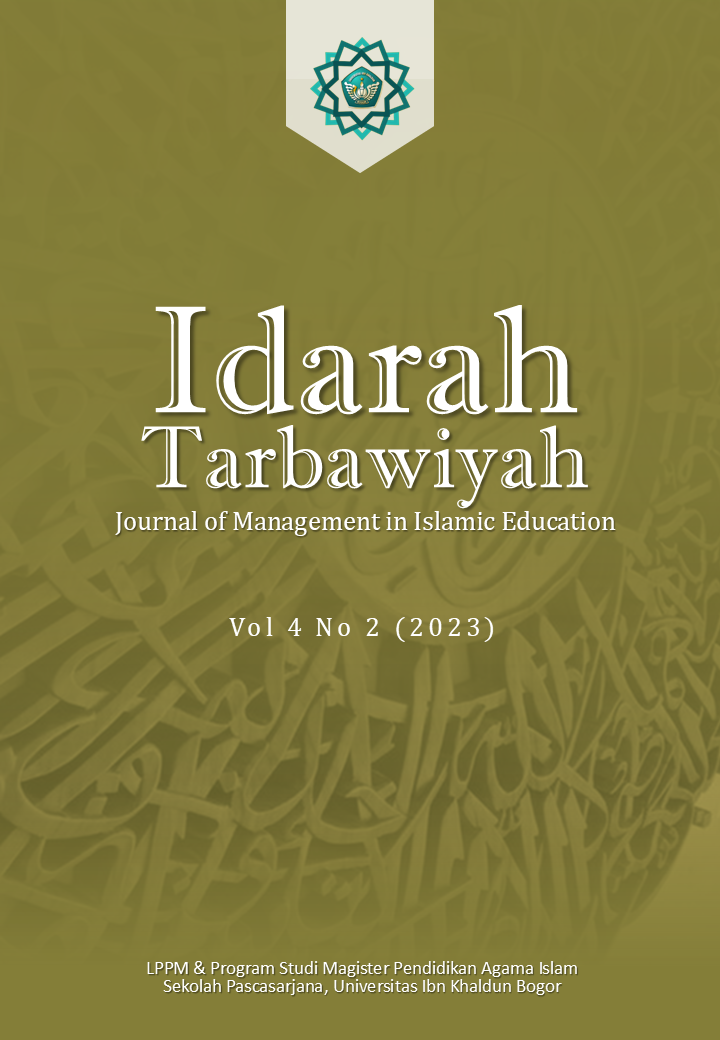Mengembangkan strategi literasi informasi sebagai bagian dari reformasi kurikulum
DOI:
https://doi.org/10.32832/itjmie.v4i2.14676Keywords:
Information Literacy, Curriculum Reform, Literasi informasi, Institusi pendidikan , Reformasi kurikulumAbstract
Despite not being a new concept, information literacy has yet to gain widespread popularity in Indonesia, including within the educational context across various institutions. This research adopts a qualitative approach and literature review to develop strategies for curriculum reform. The findings underscore the necessity of introducing information literacy courses in educational institutions as a crucial step to address societal dynamic changes. Emphasizing the significance of a quality curriculum that can effectively manage changes remains a central focus of this study. The research outcomes guide educational institutions in creating curricula that align with societal needs and advancements, with the ultimate goal of enhancing information literacy skills and the competitiveness of human resources.
Abstrak
Literasi informasi, meskipun bukan hal baru, belum begitu populer di Indonesia, termasuk dalam konteks pendidikan di berbagai institusi. Dalam penelitian ini, pendekatan kualitatif dan studi literatur digunakan untuk mengembangkan strategi dalam reformasi kurikulum. Temuan penelitian menunjukkan perlunya pengenalan kursus literasi informasi di institusi pendidikan sebagai upaya penting untuk menghadapi perubahan dinamis dalam masyarakat. Penekanan pada pentingnya kurikulum yang berkualitas dan mampu mengelola perubahan menjadi bagian utama dalam penelitian ini. Hasil penelitian memberikan panduan bagi institusi pendidikan untuk menciptakan kurikulum yang sesuai dengan kebutuhan dan perkembangan masyarakat, dan diharapkan dapat meningkatkan kemampuan literasi dan daya saing sumber daya manusia.
References
Avcı, Ü., & Yıldız Durak, H. (2022). Examination of digital citizenship, online information searching strategy and information literacy depending on changing state of experience in using digital technologies during COVID-19 pandemic. Journal of Information Science. Https://doi.org/10.1177/01655515221114455
Hicks, A., & Lloyd, A. (2021). Deconstructing information literacy discourse: Peeling back the layers in higher education. Journal of Librarianship and Information Science, 53(4), 559–571. Https://doi.org/10.1177/0961000620966027
Husaebah P, S. (2014). Literasi Informasi : Peningkatan Kompetensi Informasi Dalam Proses Pembelajaran. Ilmu Perpustakaan & Kearsipan Khizanah Al-Hikmah, 2(2).
Jabeen, M., Yun, L., Rafiq, M., Jabeen, M., & Tahir, M. A. (2016). Information literacy in academic and research libraries of Beijing, China: Practices, methods and problems. Information Development, 32(3), 579–591. Https://doi.org/10.1177/0266666914562845
Lee, A. Y. L. (2016). Media education in the School 2.0 era: Teaching media literacy through laptop computers and ipads. Global Media and China, 1(4), 435–449. Https://doi.org/10.1177/2059436416667129
Machali, I. (2014). Kebijakan Perubahan Kurikulum 2013 dalam Menyongsong Indonesia Emas Tahun 2045. Jurnal Pendidikan Islam, 3(1), 71. Https://doi.org/10.14421/jpi.2014.31.71-94
Mashuri, I. (2012). IMPLEMENTASI LITERASI INFORMASI DI SEKOLAH. Https://doi.org/10.21154/pustakaloka.v3i1.635
Molla, A., Melesse, S., & Melesse, T. (2022). Practitioners’ Curriculum Conceptualization and Their Professional Participation in Curriculum Development and Implementation in Ethiopia. Journal of Education. Https://doi.org/10.1177/00220574221088504
Salisbury, F., & Sheridan, L. (2011). Mapping the journey: Developing an information literacy strategy as part of curriculum reform. Dalam Journal of Librarianship and Information Science (Vol. 43, Issue 3, hlm. 185–193). Https://doi.org/10.1177/0961000611411961
Shonfeld, M., Aharony, N., & Nadel-Kritz, N. (2022). Teachers’ perceived information literacy self-efficacy. Journal of Librarianship and Information Science, 54(3), 494–507. Https://doi.org/10.1177/09610006211026950
Soini, T., Pietarinen, J., & Pyhältö, K. (2018). Shared sense-making strategies in curriculum reform: District-level perspective. Improving Schools, 21(2), 111–126. Https://doi.org/10.1177/1365480217744290
Tampubolon, R., Gulo, Y., & Nababan, R. (2022). Pengaruh Reformasi Kurikulum Pendidikan Indonesia Terhadap Kualitas Pembelajaran (Issue 2).
Wu, J. (2016). Educational discipline, ritual governing, and Chinese exemplary society: Why China’s curriculum reform remains a difficult task. Policy Futures in Education, 14(6), 721–740. Https://doi.org/10.1177/1478210316645248
Wusylko, C., Boehm, S., Dawson, K., & Kohnen, A. (2022). Adolescent Social Media Information Literacy Outside of School: A Scoping Review of the Literacy and Educational Technology Literature. Journal of Educational Technology Systems, 51(1), 89–107. Https://doi.org/10.1177/00472395221110567
Downloads
Published
How to Cite
Issue
Section
License
Copyright (c) 2023 Ridwan M Soleh

This work is licensed under a Creative Commons Attribution-ShareAlike 4.0 International License.

This work is licensed under a Creative Commons Attribution-ShareAlike 4.0 International License.








